Search Results
Showing results 1 to 20 of 86
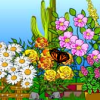
Animal Attraction
Source Institutions
Investigate a flower's power of marketing by making an imitation flower that successfully signals a bee (or other pollinator of your choice) to visit.
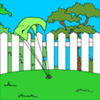
Gravity in Action
Source Institutions
Explore the effects of gravity on a slowly falling object: a parachute you make out of plastic bags, string and stones.
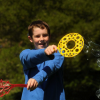
Wind Mapping with Bubbles
Source Institutions
Discover the wind's direction using bubbles, a map and a keen eye. Learners blow bubbles and note their general direction on a map, taking readings from different points around a building.
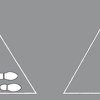
Walking Polygons
Source Institutions
In this activity, learners walk the sides and interior angles of various polygons drawn on the playground. As they do so, learners practice rotating clockwise 180° and 360°.

The Blindfolded Walk
Source Institutions
In this activity, learners work in teams to study the observation skills essential to scientific research.

Take a Hike!: A Family Forest Walk
Source Institutions
In this family or group inquiry activity, learners use their senses to explore a local forest or woodland.

Pinhole Viewer
Source Institutions
In this activity, learners discuss and investigate how cameras, telescopes, and their own eyes use light in similar ways.

Carbon Sequestration
Source Institutions
In this inquiry-based lesson, learners measure the biomass of trees, calculate the carbon stored by the trees, and use this information to create recommendations about using trees for carbon sequestra
Pace-Off!
Source Institutions
In this math activity, learners use non-standard measurement (paces) to find the distance from one point to another. Learners practice estimating and measuring distances .
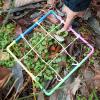
Counting With Quadrants
Source Institutions
Millions of organisms can live in and around a body of water.

Jem's Pykrete Challenge
Source Institutions
In this activity, learners make pykrete by freezing a mixture of water and a material like cotton wool, grass, hair, shredded paper, wood chips, or sawdust.

Make a Garbage Bag Kite
Source Institutions
Make a kite out of a garbage bag, shower curtain, painting tarp--anything light, thin, flexible and plastic!
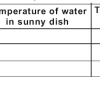
Cool Trees
Source Institutions
This warm weather activity introduces learners to the impact trees have on blocking the sun's heat and reducing temperature on the Earth's surface.
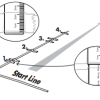
Stride Ruler
Source Institutions
In this activity, learners use their feet to estimate distances. Learners calculate the distance of one step in centimeters by measuring 10 steps at a time to reduce measurement error.

Why Are Bubbles So Colorful?
Source Institutions
In this activity, learners explore why they can see colors in bubbles and why they change.

Measuring Wind Speed
Source Institutions
In this indoor and/or outdoor activity, learners make an anemometer (an instrument to measure wind speed) out of a protractor, a ping pong ball and a length of thread or fishing line.
Hexagon Hunt
Source Institutions
This activity gets learners looking at 6-sided shapes in nature, including the cells of a beehive, as well as other shapes.
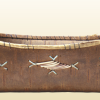
It's Natural
Source Institutions
This activity introduces learners to Native Americans as people who depended upon nature in the past and continue to emphasize the importance of nature in the present.
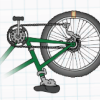
Pedal Power
Source Institutions
In this engineering activity, learners examine bicycle mechanics and gear ratios. Learners determine which gears will help them bike a set course in the shortest amount of time.
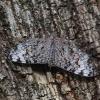
Butterflies and Moths: Camouflage
Source Institutions
In this activity, learners make a camouflaged butterfly to hide outside for others to find.
